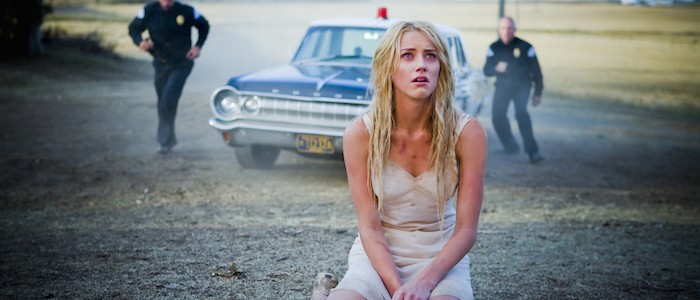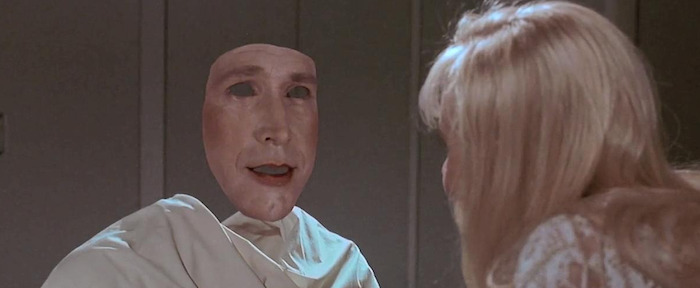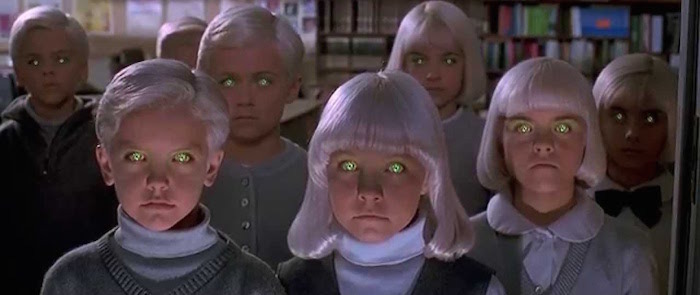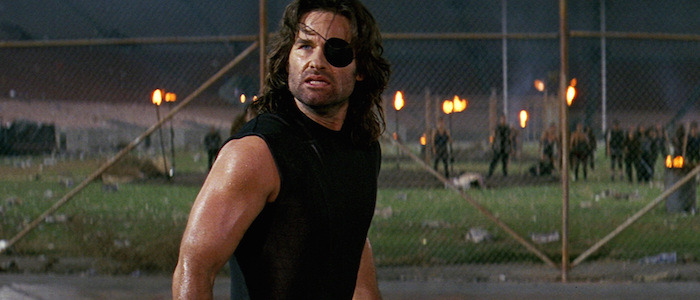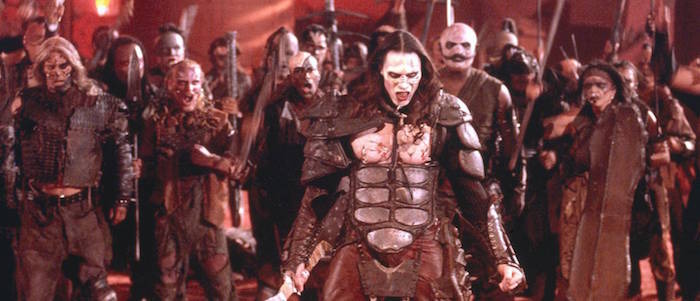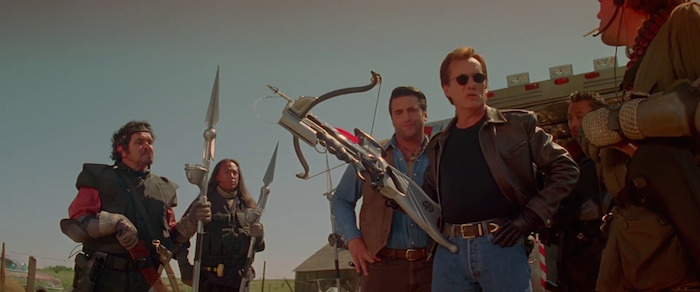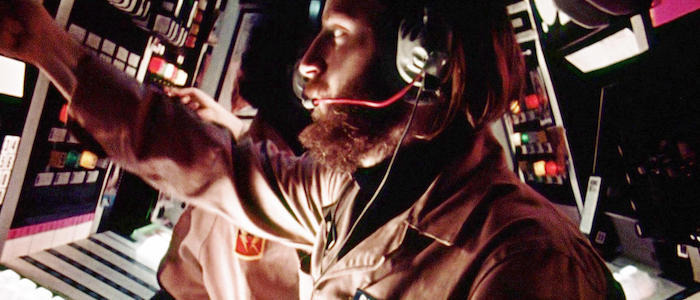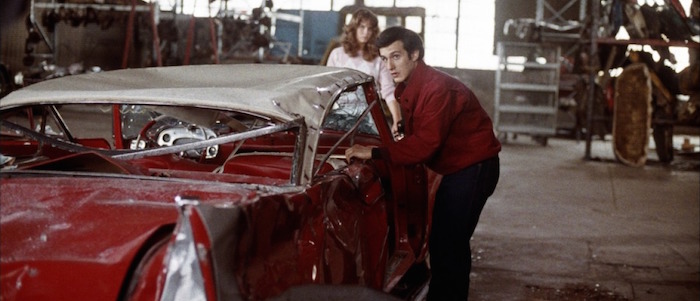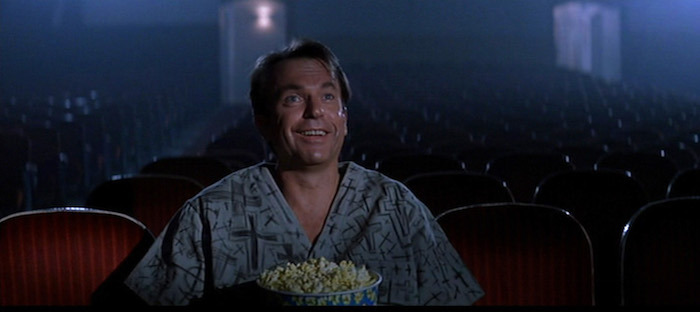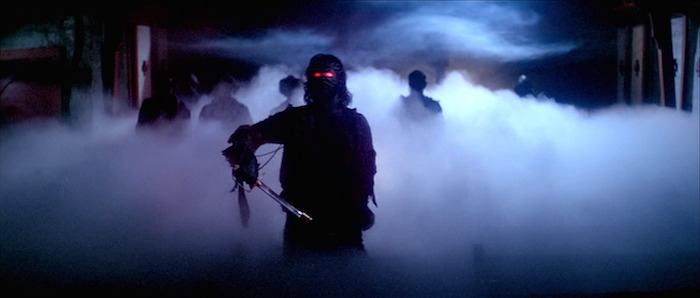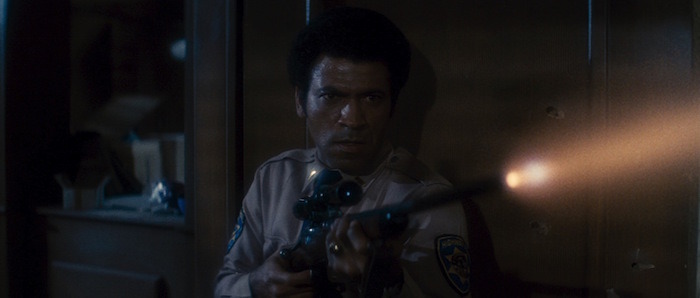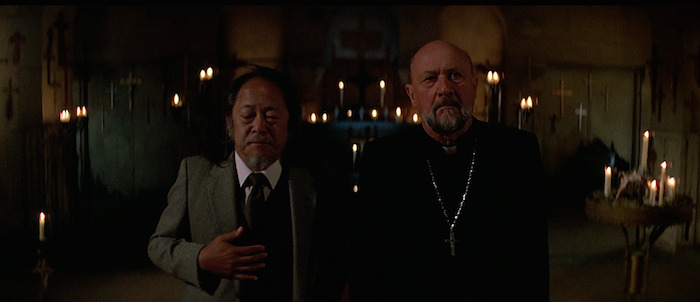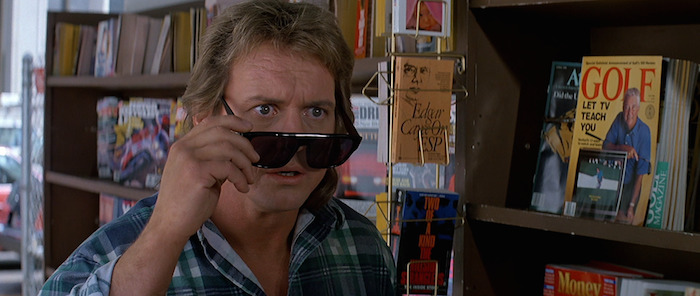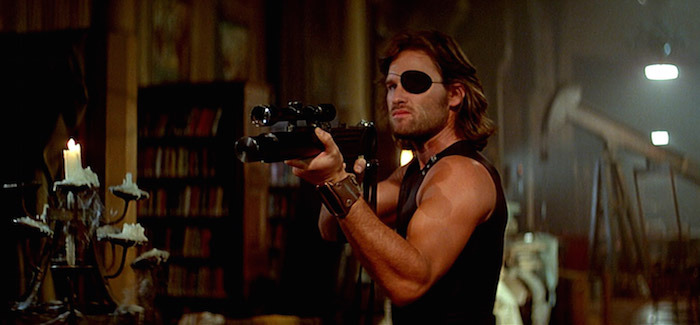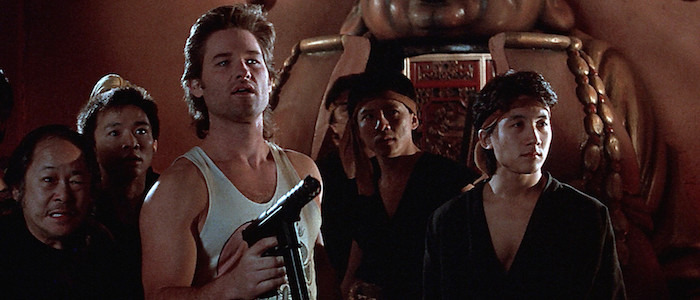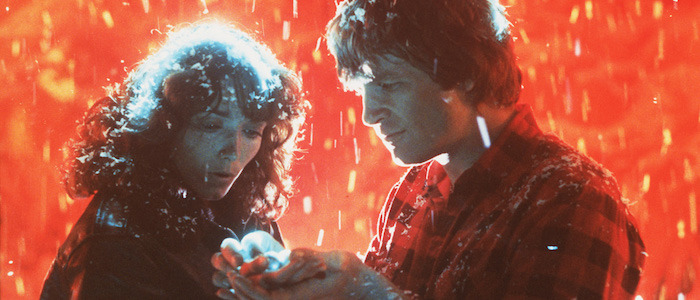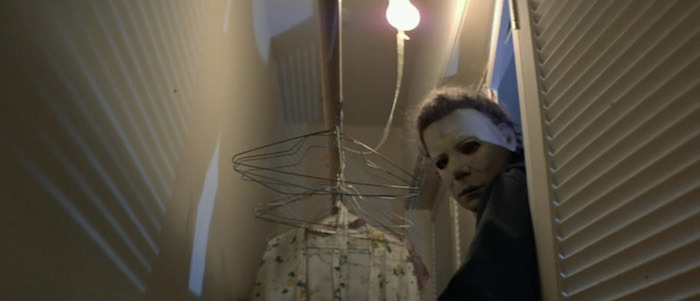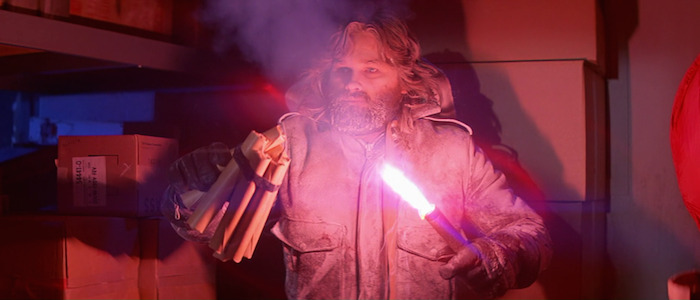Why Don't We Just Wait Here For A Little While, See What Happens: Ranking The Films Of John Carpenter
For the past month, I've been revisiting the filmography of John Carpenter, a filmmaker of extraordinary range and skill who spent a few decades churning out one masterpiece after another. And then, as luck would have it, Carpenter (who has all but retired) started entering the news again. First, Guillermo del Toro paid tribute to him with a brilliant string of tweets. Then, Blumhouse acquired the rights to make a new Halloween movie and brought Carpenter on board as an executive producer. My personal project was suddenly relevant!
Then again, John Carpenter is always relevant as long as you want to talk about one of the most fascinating and entertaining filmmakers of the past forty years. Because I needed an excuse to write about his movies (and because this is the internet), I ranked all 18 of Carpenter's theatrically released films, which was actually a tricky progress. Even his weaker movies tend to be interesting and his best movies are so good that they defy comparison.
18. The Ward
Although never quite as bad as its reputation often suggests, The Ward has one thing really working against it – it rarely feels like a John Carpenter movie. It's competent enough and it has a few solid scares and a few good ideas, but it feels more like a decent direct-to-video horror movie than the most recent film from one of the genre's undisputed masters. It's totally inoffensive...but a worse film that actually showcases Carpenter's voice is far more preferable than a middling women-in-peril ghost story built on a ludicrous twist that we've already seen time and time again.
17. Memoirs of an Invisible Man
Despite its still-impressive visual effects and a handful of interesting ideas, Memoirs of an Invisible Man is a dull misfire that never figures out what kind of movie it wants to be. While John Carpenter has elegantly strung together various genres and tones in his other movies, this one is a cinematic cacophony that never finds the proper balance between its comedic and science fiction elements. Carpenter later said this was very much a work-for-hire gig, a job that he knew would involve pleasing the studio above everyone else. It shows.
16. Village of the Damned
John Carpenter has admitted that his heart really wasn't in Village of the Damned and you can tell. Lacking the chilly atmosphere of the 1960 original, this remake is mostly guilty of being dull, hitting similar beats as its predecessor while not adding anything of value (other than a larger dose of violence, of course). The film has its fair share of solid moments and Carpenter is quite good at selling a dozen platinum-haired children as evil extraterrestrial monstrosities who must be destroyed, but the result is more dull than anything else.
15. Escape From L.A.
Escape From L.A. is mostly guilty of biting off more than it can chew. It has so much on its mind that every weird concept and wild idea can barely be contained within the film's otherwise straightforward plot. While Escape From New York is elegant in its simplicity, its sequel is a proper kitchen sink experience, with Carpenter throwing everything at the wall and seeing what sticks. While often entertaining, the results are sloppy, undone by an uneven tone and production values that looked dated while the movie was still in theaters. While it's great fun to see Snake Plissken back, this goofier, more satiric world doesn't quite gel with the character we saw earlier. Rather than feel like the nihilistic response to a dark and broken world, Snake is now just another weirdo in a dystopian future constructed out of everything Carpenter hates. Escape From L.A. is fascinating and watchable, but it is undeniably a misfire.
14. Ghosts of Mars
It may be one of the great genre premises of the past twenty years. In the distant future, a police officer is sent to a mining colony on Mars to escort a prisoner to justice. Unfortunately, the citizens of the colony stumbled across a long-buried Martian civilization, disturbed their spirits, and found themselves possessed by the ghosts of long-dead aliens who thirst for violence. It's a wonderful blend of straight-up horror and science fiction and the film occasionally comes close to working! Ghosts of Mars looks and feels cheap, but it has a campy '80s quality that actually works in its favor. When you view it as a throwback, Ghosts of Mars is a good, violent, and weird time at the movies, a film that I can't help but enjoy as a guilty pleasure. It's certainly not good by any rational criteria, but it's fun and gross and it's rarely a chore to watch. Plus, a proper score from Carpenter himself goes a long way.
13. Vampires
The problem with Vampires is that is peaks early. Once you see James Woods' team of badass vampire hunters doing their thing and working together like seasoned pros and really selling the idea of blue-collar (albeit Vatican-funded) killers of the undead just getting the job done, you just want the rest of the movie to be about this crew. At its best, Vampires is Carpenter doing Sam Peckinpah doing a horror movie, complete with tons of gory violence, macho posturing, and arid landscapes. However, the film quickly strips Woods of his team and sends the few survivors down a far more generic path involving an especially powerful vampire and a ritual that will allow vamps to live in sunlight. Vampires is crude and nasty and often very fun, but too much of the film's second half feels overly familiar.
12. Dark Star
John Carpenter's first feature film is barely a feature film at all. Shot for $60,000, Dark Star was the work of a few very talented film students working exceptionally hard to ensure every single penny of their budget ended up on screen. Eventually, the film made the festival rounds, received theatrical distribution, and suddenly one of the more impressive student films ever made was being measured against films with proper budgets in actual theaters. This backstory is key to understanding and appreciating Dark Star, which is less of an actual movie and more of a mission statement from its creators, a calling card announcing their arrival. While crude, you can see plenty of Carpenter in this film: it's a story of frustrated men living and working in uncomfortable proximity, a pessimistic black comedy about a hopeless future, and an effortless blend of genres, incorporating humor and science fiction even a smidgen of horror. Carpenter's interest with blue-collar people faced with the extraordinary begins right here. The leads of Dark Star aren't space explorers as much as they're bored technicians, doing a job no one wants to do and wishing they could be anywhere else.
11. Christine
One of the better Stephen King movies out there, Christine is an effective adaptation that takes the original novel, strips it for parts, and builds a new ride that gets the job done with style and efficiency. Arriving in the middle of Carpenter's untouchably great '80s run, Christine stands out for being merely good while being surrounded surrounded by several bonafide masterpieces. For that reason, this tale of a 1958 Plymouth Fury that is possessed by the devil and sways its new owner to the dark side often gets lost in the shuffle and that's a little unfair. Christine is a good horror movie, a slasher film where the masked killer just so happens to be a classic automobile, and if it weren't for the melancholy-tinged ending (a modified but emotionally accurate carryover from the book), it would function as a genuine crowdpleaser.
10. In the Mouth of Madness
John Carpenter's off-kilter but loving tribute to the likes of Stephen King and H.P Lovecraft is wildly uneven, but it has personality to spare. The slow-burning start eventually gives way to a parade of brilliant practical effects, surreal imagery, nightmarish concepts, and an ending that wants to (and most succeeds in) turning your brain inside out. International treasure Sam Neill is the ideal protagonist for this kind of movie. As an insurance investigator looking into an author who has mysteriously vanished, he is all charming professionalism. As the frail human shell who discovers that said author has essentially become God and can rewrite existence in the style of his horror novels, he's appropriate unhinged and darkly hilarious. In the Mouth of Madness is really all about throwing Neil through a wringer of psychosis and watching him squirm and it works.
9. The Fog
Here is a film that works because it is so completely and utterly simple. The Fog feels like an adaptation of a story told on a rainy night while everyone is warming themselves by the fireplace. It's deliciously old-fashioned. It feels like an old standard that never was. A strange fog arrives in the town of Antonio Bay, bringing with it the vengeful spirits of a ship that was sunk a century before by the town's founders. These ghosts, dark shapes with red glowing eyes and sharp implements, are straightforward instruments of revenge, tools that allow Carpenter to set up a series of chilling set pieces that are always more frightening than violent. The Fog gets started quickly, does its business in a swift 89 minutes, and then departs, leaving you with a lean and mean experience that feels like it could have been a a classic in the '50s...just with a few more decapitations.
8. Assault on Precinct 13
Part Rio Bravo, part Night of the Living Dead, and part grimy exploitation film, Assault on Precinct 13 film is the first proper John Carpenter movie. Relentless and mean and unwilling to pull a single punch, it's the kind of trash masterpiece that lodges itself in your brain and doesn't leave. Working from a tiny budget and without a studio working over his shoulder, Carpenter crafted a white-knuckle carnival of carnage that allows you to ignore the lack of polish by pummeling you into submission with sheer grit. The premise remains so elegantly simple: a vicious street gang puts an isolated police station under siege and the cops and criminals within must team up to survive the night. But Carpenter reveals that he is taking no prisoners early on (see: the infamous ice cream scene) and the lack of any identifiable safety rail makes for a thriller where all bets are off and no one is safe.
7. Prince of Darkness
For its first hour or so, Prince of Darkness threatens to be one of the absolute best movies in John Carpenter's filmography. It's smart and scary and stunning in its originality, combining science fiction and occult horror to tell the story of a team of scientists who do battle with the forces of Satan in a condemned church...except that Satan is actually an alien. With a cast front-loaded with tons of Carpenter regulars, Prince of Darkness builds a core group of characters you quickly care about, dispatches the rest (turning them into mindless slaves of the devil, of course) and proceeds to put everyone through a series of turbulent and surreal trials that test their faith in both God and science. Even though the film ends well (a moment involving a character reaching through a mirror is an all-timer), the pacing slows to a crawl in the final third, almost as if the screenplay ran out of things to do and just decided to let the characters sit around until it was time to leap into the climax. Still, Prince of Darkness is the most underrated of Carpenter's movies and a worthy entry in his untouchable '80s run.
6. They Live
They Live has become such a meme over the years that it is vital to revisit it every so often and remember that it is actually a fantastic movie and one of the cleverest satires of the '80s. The real genius of the film is that it houses its acidic worldview inside a silly shell. It's no accident that John Carpenter cast a natural born ham like Roddy Piper in the lead role – he's the instantly lovable goofball that guides us into a movie that otherwise hates the world so damn much. The premise of the film has grown larger than the film itself, with people who have never even seen They Live being familiar with the concept of glasses that reveal the subliminal messages encoded into every corner of the world...and that all of our world leaders are actually aliens in disguise. It's a terrific way to kickstart an action movie (Piper is going to chew bubble gum and kick ass and kill the alien scum!), but it's an even better outlet for Carpenter's inherent pessimism and his obvious distaste for the politics of the time. They Live is hilarious, but its laughs are bleak and nihilistic. Humanity has given into the monsters and all you can do is chuckle at how far we've all fallen.
5. Escape From New York
Escape From New York is one of the best dystopian science fiction movies ever made, a terrific and imaginative action movie that also argues that that world will eventually crumble and it won't be worth saving. There is no hero in this film – there is only Snake Plissken, the nihilistic, resourceful, and brutally effective criminal forced to journey against his will into the penitentiary that used to be New York City to rescue the President of the United States. Although Carpenter displays his usual eye for action and atmospheric menace throughout Escape From New York, he chooses to rest the film on Kurt Russell's shoulders and the results are nothing short of spectacular. Many movie antiheroes have mimicked Snake, but none have equalled him. In a world as ugly as this (the far-flung future of 1997!), a man who literally cares about nothing is the only appropriate tour guide.
4. Big Trouble in Little China
Big Trouble in Little China is the silliest of John Carpenter's movies, a colorful and magical fantasy adventure that subverts all expectations and builds a mythology that feels fresh and alive. While gentler than his average film (and the rare Carpenter movie that could make for suitable family viewing), the film maintains a razor-sharp edge. After all, making a fun and fantastical and goofy-as-hell movie means little if that journey at the center of the film was cushioned and safe. Carpenter walks a tricky tonal tightrope – he keeps things lighthearted while also ensuring that every threat feels real and every perilous situation looks genuinely dangerous. Carpenter also subverts Hollywood tropes, making sure that Kurt Russell's big-mouthed Jack Burton proves completely useless in almost every fight, quietly allowing Dennis Dun's Wang Chi to take the spotlight and save the day whenever possible. There is no trope, no cliche, that Big Trouble in Little China doesn't gleefully shatter.
3. Starman
Although he's leapt from genre to genre throughout his career, few would accuse John Carpenter of being a particularly romantic filmmaker. Well, those who haven't seen Starman would make that accusation, because this is one of the all-time great movie romances...and it happens to be wrapped inside a wonderful and lovely science fiction story that could be be described as "E.T. for adults." As the alien who takes the form of a young widow's dead husband, Jeff Bridges gives an all-time-great performance, playing his character not as an oddball but as a form of life with no connections to humanity whatsoever, struggling to understand his body and his language. As that young widow, who finds herself road-tripping with this strange creature who looks like her dead husband, Karen Allen gives the kind of sweet, charismatic performance that makes you wonder why she never became a major movie star. Above all, you watch this beautiful and moving and thoughtful film and wonder why John Carpenter never made a movie quite like this one ever again. Maybe that was for the best. Starman is just about perfect.
2. Halloween
At this point, Halloween speaks for itself. Few horror movies cast a larger shadow and thousands of movies owe their very existence to what John Carpenter pulled off here. But while the masked, mute Michael Myers often gets lumped together with the likes of Freddy Krueger and Jason Voorhees, the original Halloween couldn't be more different from the countless imitators it spawned over the decades. With its patient pacing, unnerving long shots, and subtle reveals, Carpenter's work here feels more akin to Alfred Hitchcock than a typical slasher film. In Halloween, the threat of violence is so much more frightening than the violence itself. The idea that someone wants to harm you, that someone is in your home, has never been more terrifying.
1. The Thing
The Thing is one of those rare cinematic butterflies – it's a perfect movie. An outstanding cast (Kurt Russell, surrounded by so many brilliant character actors), remarkable make-up and creature effects (courtesy of the brilliant Rob Bottin and his crew), a killer screenplay filled with outstanding reveals and quotable lines (written by Bill Lancaster), and a musical score from the great Ennio Morricone (a rare case where Carpenter not scoring his own movie has been forgivable) all come together to form the perfect genre cocktail. The blood-testing sequence is the finest scene Carpenter has ever shot. The scene with the defibrillator, you know the one, may be one of the greatest creature effects sequences in cinema history. The final scene, where two men wait to die and aren't aware if they saved the world or doomed it, is Carpenter's patented pessimism at its very best. Good God. How about we all go watch The Thing right now?

